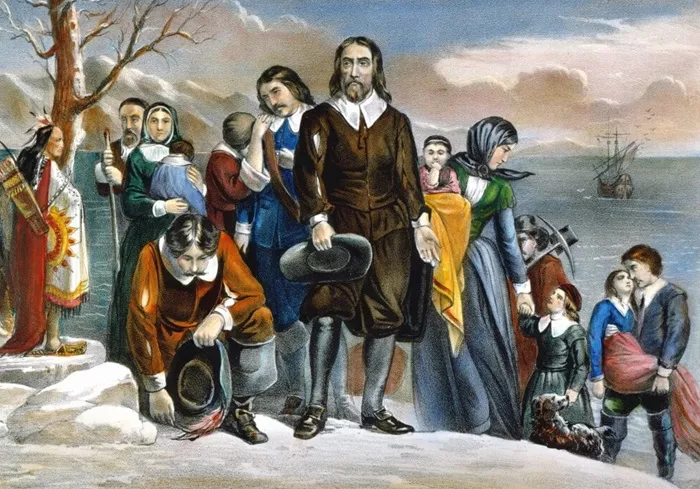December 21 has been a significant date throughout British history, marked by various notable events that have shaped the nation. This article explores these events in detail, providing insights into their historical context and impact.
What Happened on December 21 in British History?
1. Birth of Thomas à Becket (1118)
On December 21, 1118, Thomas à Becket was born in Cheapside, London. He would later become one of the most prominent figures in English history as the Archbishop of Canterbury. Becket’s early life was marked by a privileged upbringing; he was educated at Merton Priory and later studied at the University of Paris. His career began in the service of King Henry II, who appointed him as Chancellor of England.Becket’s rise to power was swift, and he became a close confidant of Henry II. However, tensions arose between Becket and the king over the rights and privileges of the Church versus those of the monarchy. This conflict culminated in a dramatic fallout that led to Becket’s murder in 1170 by knights loyal to Henry II. His death made him a martyr and a symbol of the struggle for church independence from royal authority.
2. The Pilgrim Fathers Arrive at Plymouth Rock (1620)
On December 21, 1620, the Pilgrim Fathers, a group of English Puritans seeking religious freedom, arrived at Plymouth Rock in Massachusetts aboard the Mayflower. This event marked a significant moment in British colonial history as it represented the beginning of permanent English settlement in New England.The Mayflower set sail from Southampton on August 5, 1620, but faced numerous challenges during its journey. After more than two months at sea and with many hardships endured, including illness and limited provisions, the Pilgrims finally reached their destination. The settlement they established would become a cornerstone for future American society and culture.
3. Birth of Benjamin Disraeli (1804)
Benjamin Disraeli was born on December 21, 1804. He would go on to become one of Britain’s most influential Prime Ministers and a key figure in Victorian politics. Disraeli was known for his wit, charm, and political acumen, which helped him navigate the complexities of British politics during a time of significant change.Disraeli served as Prime Minister twice: first from 1868 and then from 1874 to 1880. He was instrumental in expanding the British Empire and promoting social reforms that addressed issues such as poverty and education. His rivalry with William Gladstone defined much of British politics during this era.
4. The Jacobite Rebellion (1715)
On December 21, 1715, James Edward Stuart, known as “the Old Pretender,” landed in Scotland to lead a Jacobite rebellion against the British government. This event was part of a larger effort by supporters of the Stuart dynasty to reclaim the throne from the Hanoverian kings.The Jacobites aimed to restore James II’s descendants to power after his ousting during the Glorious Revolution of 1688. The rebellion initially gained some support but ultimately failed due to poor organization and lack of resources. The defeat at the Battle of Culloden in 1746 marked the end of major Jacobite uprisings.
5. Lockerbie Bombing (1988)
A tragic event occurred on December 21, 1988, when Pan Am Flight 103 exploded over Lockerbie, Scotland, killing all 259 people on board and 11 residents on the ground. This terrorist attack was one of the deadliest aviation disasters in history and had profound implications for international security and counter-terrorism efforts.The bombing was attributed to Libyan agents who were later implicated in orchestrating the attack due to political tensions between Libya and Western nations. The incident led to years of diplomatic conflict and highlighted vulnerabilities in aviation security protocols.
6. Adoption of International Convention on Racial Discrimination (1965)
On December 21, 1965, the United Nations adopted the International Convention on the Elimination of All Forms of Racial Discrimination (ICERD). This convention aimed to combat racial discrimination globally and promote equality among all races.The UK played a significant role in this initiative as part of its commitment to human rights following World War II. The adoption marked an important step toward addressing systemic racism and fostering social justice within Britain and worldwide.
Conclusion
December 21 has witnessed numerous significant events throughout British history that have shaped its political landscape, cultural identity, and social fabric. From Thomas à Becket’s birth to modern tragedies like the Lockerbie bombing, each event reflects broader themes within British history—struggles for power, quests for freedom, cultural achievements, and ongoing challenges related to human rights.As historians continue to analyze these events’ implications, it becomes evident that December 21 serves as a reminder of both triumphs and tragedies that have defined Britain over centuries. Each occurrence invites further exploration into how past actions resonate within contemporary society—an essential endeavor for understanding our collective history.
Related Topics:

